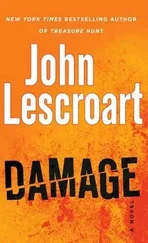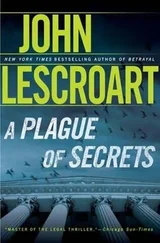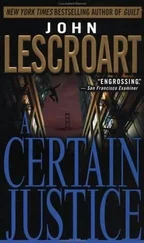“At what time shall we eat?” I asked. Later I would recognize that slight turn of the lips as a beaming smile.
“We can begin immediately, if you’d like to come down to the kitchen.”
“Gladly.”
We crossed through the tables to a door that didn’t leave much room to spare for us and opened it. A short stairway led to the kitchen. He stopped at the bottom.
“And the introduction?”
“Pardon?”
“To the brewer?”
“Ah yes. You’ve already met him.”
He raised his eyebrows. “Indeed?”
I nodded. “A vôtre service.”
And so it was arranged that Auguste Lupa come to my house the next morning at ten for beer and a light lunch.
2
Espionage, like any other profession, has its ups and downs. Lately, though, it had taken a monotonous turn to the latter.
I’d been one of the few operatives who’d dared before August to suggest that the German thrust would be through Belgium. This was viewed as so outrageous that those of us who believed it were “transferred.” Even after the event came to pass, we were still regarded as second-class and relegated to desks or to the country. I should have been upset with the demotion, but in fact I’d been happy. I’d begun to feel constrained under the inflexibility of Joffre’s 1yoke.
Consequently, I had spent the past autumn behind a desk, doing nothing worthwhile, and had finally, much to my relief, been called back to my hometown for this case. It was to be a break in my routine, a kind of forced vacation. No sooner had I returned to the little white house, nestled snugly amid grapevines and a small grove of oaks, however, than my contact had suddenly been taken dead—officially, an accidental drowning.
The next month I’d busied myself with the beer and light gardening, spending much time with my new chef, a young Swiss with extraordinary promise named Fritz Benet. It had been a pleasant enough time, or would have been without the specter of murder hanging over the house. Normally, living in an atmosphere where people tend to die unexpectedly didn’t overly disturb my peace of mind, but somehow, at home, I found it quite annoying.
There were, of course, my friends. Marcel Routier, my closest friend and fellow agent (though we rarely worked together) was now in Valence. My other friends, to whom we were traveling salesmen, included Henri Pulis, a Greek shop owner in town; Paul Anser, an American poet of some small repute; and Georges Lavoie, an Alsatian salesman who dealt in hospital supplies. Including Fritz, then, these were the other five men who knew about the beer.
There was also Tania. I had told Lupa that only five other men in town knew about the beer, and Tania—tall and slim, with long black hair and deep, deep eyes and voice—was as far from being a man as any creature on earth.
Marcel had been sent down after my original contact had “drowned” and had told me the problem. It was believed that the man behind most of the assassinations in the past two years—including Francis Ferdinand’s in Sarajevo—was now living and working out of Valence. How intelligence had come to believe that, I had no idea, since there wasn’t a shred of evidence that pointed to the involvement of a mastermind assassin. Yes, last spring an agent in Valence had been found with a bullet in his head two days after wiring that he was onto something big. But “something big” could mean just about anything these days, what with half the nations of Europe at war.
There was, in fact, only one event of importance, of real significance, attached to this locale, and that was the arrival, early the previous fall, of Auguste Lupa.
Obviously, that wasn’t his real name, but no one had any idea of what it really was, so it didn’t matter. In Belgrade, he’d been Julius Adler. At Sarajevo, he was Cesar Mycroft. In Milan . . . but the list is immaterial, though impressive. Always a reference to one of the Caesars in one of the names—perhaps some family connection. We’d followed him when he broke out of jail in Belgrade a year ago June, lost him briefly, found him again in Geneva, trailing him to Valence. When he actually took a job here, I’d been sent.
Lupa was the unparalleled genius among the agents of Europe and he seemed to work for himself, for no government acknowledged him. As far as we knew, he’d been approached before, by us as well as the British and Russians, and to all he’d feigned an absolute innocence of any knowledge of espionage or even of the affairs of politics. His loves, he said, included only food and beer. In spite of his protestations of naivete, he’d been jailed for espionage in three countries and had turned over quantities of information, always by leaving a bag loaded with papers in a locker somewhere. The material was always typed, never on the same machine, never with the same paper, almost never in the same language, and always frighteningly exact. He was the best, and he’d been trying to discover the brains behind Europe’s assassinations for two years. He obviously wanted us here, or he wouldn’t have let himself be followed, and yet he’d made no overtures of any sort and had forced me to contact him. It was barely possible that he didn’t suspect my associations, but it was probable that even as I sat down across from him, he was cataloguing everything he knew about me, deciding the time was right, and letting me set the tone of our relationship.
During lunch, I had asked him if he’d mind if a friend of mine were present at the next day’s meeting, and he’d said no. Accordingly, I invited Marcel Routier, and he arrived early the next morning, a little past nine o’clock. We sat outside in the sun for our coffee.
“He, of course, knows us,” he said.
I shrugged. “It’s nearly certain, but he may have been so attuned to his own inquiries that they haven’t crossed ours yet. In any case, we’ll see before long.”
He sipped at his coffee, took a bite of Fritz’s blueberry muffin, and looked out over the grounds. His hair was the color of straw, which made it look as though there was less of it than there was. It was a bit too long for my taste, just touching the tops of his ears, which he said was to make up for the lack on top. This morning he was wearing white pants and shoes, and a high-collared blue shirt, and, except possibly for his face, he looked much more the dandy than the spy. A lot of women had found him attractive, but I couldn’t understand why. Tania had said he had classic features, but too many of them. His forehead and nose commanded his face except when he smiled, at which time his teeth commanded everything. He was smiling now.
“Damn,” he said, “I wish I’d thought of getting Lupa with beer. Occasionally you show real genius, Jules.”
“Perception and devotion, hardly genius. When Fritz told me of the food at La Couronne, it started me thinking. A man who could cook as well as he did, who smuggled in spices for the integrity of his dishes, and yet who spent every morning drinking swill on the sidewalk . . . no, it didn’t make sense. That man’s taste buds were too refined for that beer, but he loves beer. Simple, actually.”
“Like Columbus’s egg,” he said.

At first, even at Lupa’s insistence, Fritz would not come to the table with us, but finally he overcame his prejudice against the chef dining with his patron when Lupa got him engrossed in a recipe for pheasant.
“The problem,” he said, “is that too often that delicate bird is overwhelmed by tarragon and sage, when it should be coaxed into accepting their favors, as a woman might accept other favors, with a little wine. Set the spices in the wine first, several hours before, and leave it chilled. Then—”
Читать дальше













